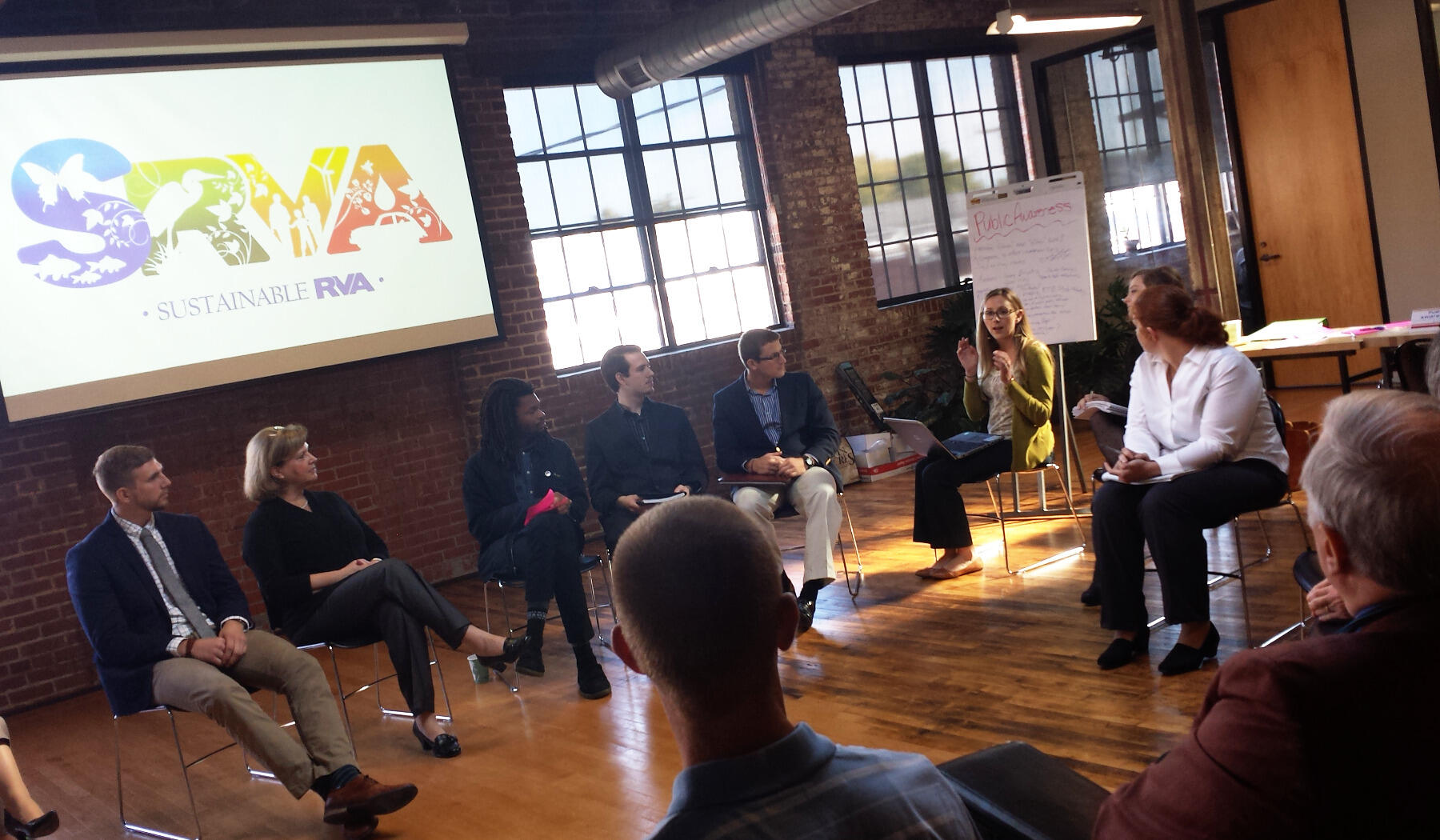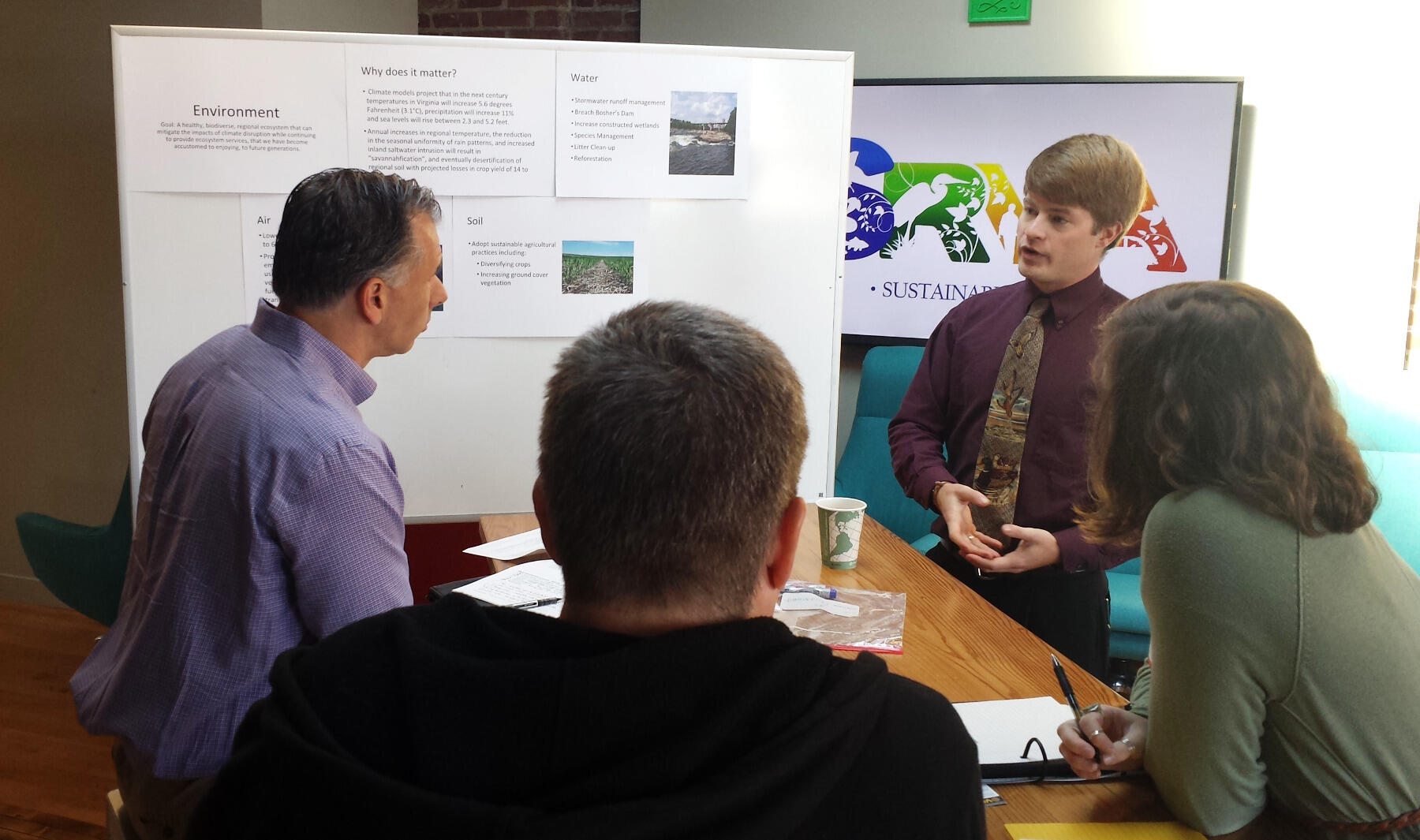Oct. 30, 2015
Preparing for Richmond’s future through the Sustainable RVA plan
Share this story
Richmond’s future in the face of climate change was confronted head on during the Sustainable RVA action plan release, held Thursday at the Virginia Commonwealth University School of the Arts Depot.
The plan to get ahead of the curve on economic, environmental and social impacts of climate change in the region is led by William R. Godfrey, an adjunct instructor for the Life Sciences Center for Environmental Studies and the School of Business Certificate of Completion in Globalization and Sustainability.

Photo by Pat Kane, University Public Affairs
The release event drew about 40 students and community members to ponder the future of the plan — and the Richmond region. It was the follow-up to a fall 2014 conference.
“Some very successful cities are doing this,” Godfrey told the group. Richmond is behind some, but ahead of many other localities in terms of regional planning.
Making green living “cool,” synchronizing sustainability plans from various local organizations, encouraging collaboration by nonprofits and speaking on sustainability and climate change issues at local government meetings were among the topics discussed at SRVA.
VCU students are playing many roles in the planning process, including leading breakout-group discussions on inclusivity, health and other themes.
“A lot of average people care about the environment, [but] it’s just not convenient,” said Emily Philpott, a sophomore biology major. Her discussion group encouraged green living becoming a “convenient option for the everyday person.”

Photo by Pat Kane, University Public Affairs
Hannah Fuerhoff, who recently received a master’s in environmental studies degree from VCU, and her group discussed ways to make efficiency upgrades such as insulation and lighting fixtures more appealing to tenants and landlords alike. In a Catch-22, landlords don’t want to spend money on upgrades, because they won’t reap the benefit of lower utility bills. Meanwhile, renters won’t invest in a temporary property they don’t own.
“A lot of VCU students can relate to that. ‘My apartment is 50-degrees, but I don’t want to heat it,’” Fuerhoff said. She envisions a program to compare energy usage before and after upgrades, or perhaps a crowdsourced registry of utility bills tagged to specific apartments or buildings to inform future tenants.
“That could be data we could use to change policy,” she said.
They see the whole game board, not just their own discipline and expertise.
At VCU, Godfrey hopes to continue to integrate sustainability elements into various courses and programs. That eye on the future will add value to students’ education and experience as they enter the workforce, he said. “They see the whole game board, not just their own discipline and expertise,” he said. “There is a need for people in political science, early childhood education, all kinds of places.”
Philpott said her first sustainability-focused class, and involvement in the SRVA project, has compelled her to learn more.
“I do plan to take more classes, or pursue a minor,” she said.
The Sustainable RVA plan is open for public review and comment for two months at http://www.sustainable-rva.com .
Subscribe to the weekly VCU News email newsletter at http://newsletter.news.vcu.edu/ and receive a selection of stories, videos, photos, news clips and event listings in your inbox every Thursday.
Subscribe to VCU News
Subscribe to VCU News at newsletter.vcu.edu and receive a selection of stories, videos, photos, news clips and event listings in your inbox.










